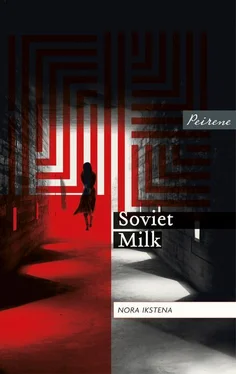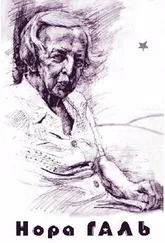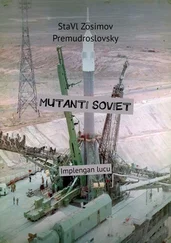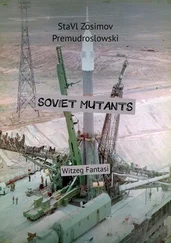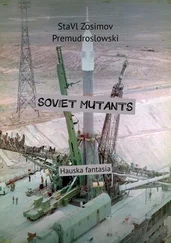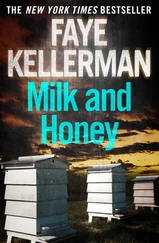In the hospital corridor the head doctor didn’t greet me, just nodded for me to enter his office. He locked the door. Then he sat down at his large desk, glaring, and pounded his fist on the table.
‘You’ve destroyed not only your career but mine too. I put in a good word on your behalf. I was interrogated about you. A doctor, a woman, a mother, beats up an ex-soldier and hero of the Great Patriotic War. How do you justify your actions?’
‘He beat his wife, whom we had succeeded in impregnating.’
‘What did you succeed in?’ The head doctor’s face turned deep red in his fury.
‘We impregnated his wife, because he couldn’t manage it. She brought the sperm, we warmed it and injected it into her.’
‘Do you understand the line you have crossed? You are banished. You won’t get work in any of the city’s hospitals. And you can thank that ex-soldier of the Great Patriotic War, since he signed a request that you should not be criminally prosecuted. You deserve to be. You deserve to be put in prison.’
‘I would like to be in prison.’
‘You’re not normal and I don’t understand why God has given you such talent.’
‘God, as you know, doesn’t exist.’
‘Out of my sight! Get out! Get out!’
I walked out into the corridor and drew into my lungs the familiar smell of disinfectant and medication. I was banished from my paradise. Prison would have been my redemption. Nothing made sense any more.
*
Gradually I got used to my new life, to my mother’s good and bad moments, and stays with my grandparents that were marked by sad farewells. I was still young, but I sensed that on the inside I was growing up. I was responsible for my mother. No one knew her light and dark sides better than I did. No one else stood ready to catch the next moment when she would want to leave her life behind.
Sometimes she would come home unexpectedly early, roast a crackling chicken and bake a delicious apple cake. We would eat while the dog waited under the table for tasty morsels. My mother would tell me strange stories, things no one had ever told me before. She said that we had once been free. I didn’t understand. We’d had our own nation. But we have our own nation, I protested: the Soviet Union. Before it was only Latvia, my mother said. Her face took on that familiar, fearful grimace. There was only Latvia, she repeated, without the Russian lice, which won’t live in their own homeland but crawl all over us. In our school there were two classes of Latvians and one of Russians, and we got along well. Why lice?
We country children were all equal. In summer at the kolkhoz we would squat with sunburned backs and soil-covered feet and hands in infinitely long beetroot and cucumber rows. We weeded and counted the endless metres remaining until we met a quota approved by a fierce woman brigadier. If she found even one weed, you had to weed another portion. In the autumn, school began after the harvest. First the vegetables had to be dug out with pitchforks and piled up, then their tops had to be cut or twisted off. Sometimes it was freezing, other times it rained. But we continued to cut and twist. Our young proletariat worked their fingers to the bone. Freedom was that tiny glimmer of happiness when, soaked through, we would drag ourselves home and dry out beside a hot stove, fortified by fresh clothes and dinner.
‘They’re raising new slaves,’ my mother used to say. What she said often seemed incomprehensible to me – about freedom, and the lice and the slaves. I became used to her living in her own world, which I accepted in our calm coexistence. At school I did not talk about life at home, which was so different from the lives of my school friends.
One morning something strange happened in our small village. Nearby, on the high street, someone had scrawled in chalk: ‘Let’s grind the Russians into flour – that’ll fulfil our food quota.’
An investigation was launched at school. Everyone denied everything. The Russian class viewed everyone else with suspicion. Rumours circulated that the culprit was one of the grown-ups.
After two days, I was called out of class to the headmistress’s office. Beside the head sat a man in a grey coat. The head told me that the comrade wished to talk to me.
A feeling of deep dread rose inside me. I was terrified that I would be left alone with this comrade in the headmistress’s office. I must have turned so pale that the headmistress made me sit down and poured me a glass of water. ‘Your heart is pounding,’ she said. ‘Maybe we should call the school nurse? Maybe later?’ She looked at the comrade, who sat at her desk unperturbed, drumming on it with his fat fingers. ‘No, now. Leave,’ he said to the head harshly.
We were alone in the office. The comrade grabbed my shoulder and painfully yanked me around to face him.
‘Now stop shaking and answer my questions,’ he said. ‘Has your mother ever told you anything that is not taught in school?’
I started to cry. And in an instant I understood that the only ones suspected of the chalk graffiti on the street were my mother and me.
‘Calm down and answer my question. Unless you answer you will not leave this room,’ the comrade shouted.
Then, to my own surprise, I did calm down. I took a deep breath and said, ‘Yes, she did tell me how a baby is created. She’s a doctor, she knows this, and now I also know. That’s not taught in school.’
The comrade looked as if he’d been dunked in icy water. My fear was receding. In its place grew a feeling that there was nothing he could do to me. He would never, under any circumstances, find out what I knew: about freedom, about the lice and the slaves. He would never find out.
The comrade looked uncomfortable.
‘Is that all she’s told you?’
‘No, not all. She’s drawn how a baby lies in a mother’s womb and how hard it is for it to get out. And in general, how hard it is to be born.’
I took heart. I saw how the comrade’s sweaty countenance deflated. How he pulled out his dirty handkerchief and wiped his face.
‘Great strength is needed,’ I said, ‘for the baby to crawl out of its mother. Usually that takes place with his or her head first.’
‘Thanks, that’s enough,’ the comrade said. ‘I have no more questions.’
He stood, opened the door and called in the head, who had been waiting obediently outside.
‘Everything is in order,’ the comrade said.
I saw enormous relief in the headmistress’s eyes. She led me back out into the corridor, told me that I could have the rest of the day off and patted my head quite kindly.
I snatched my school bag from the classroom and my coat from the locker and headed for my beloved embankment by the railway tracks.
I settled down on a tree stump. This was my freedom, my time. From afar an overnight train roared its approach. Those trains never stopped at our station.
When the din of the train had faded, silence set in. In that silence, my heart beat calmly and I feared neither the dark forest nor the animals it harboured. And I wasn’t afraid of my mother, only terribly worried about her. And I knew it would be like this until death separated us.
It was a strange evening. I boiled a pail of water, got an old brush and went out into the street. The dog followed me. I poured hot water over the chalked graffiti and, with alternate sluicing and scrubbing, the words gradually disappeared. Now and then, lights in the surrounding houses marked out curious onlookers, but no one stared for long. Even after darkness fell, I continued to scrape away at the asphalt with my brush. When I finally went home, all that remained was a blurred chalk residue.
*
Exiled, I went out into the hospital’s car park. At intervals the ambulances would bring new patients to the emergency entrance. I gazed at the lighted windows. The dimly lit wards, the bright lights of the operating theatre, the dark blue of the morgue. All these were mine no longer. I was driven out into a world for which I cared nothing. A world in which I had been unnecessary since birth.
Читать дальше
